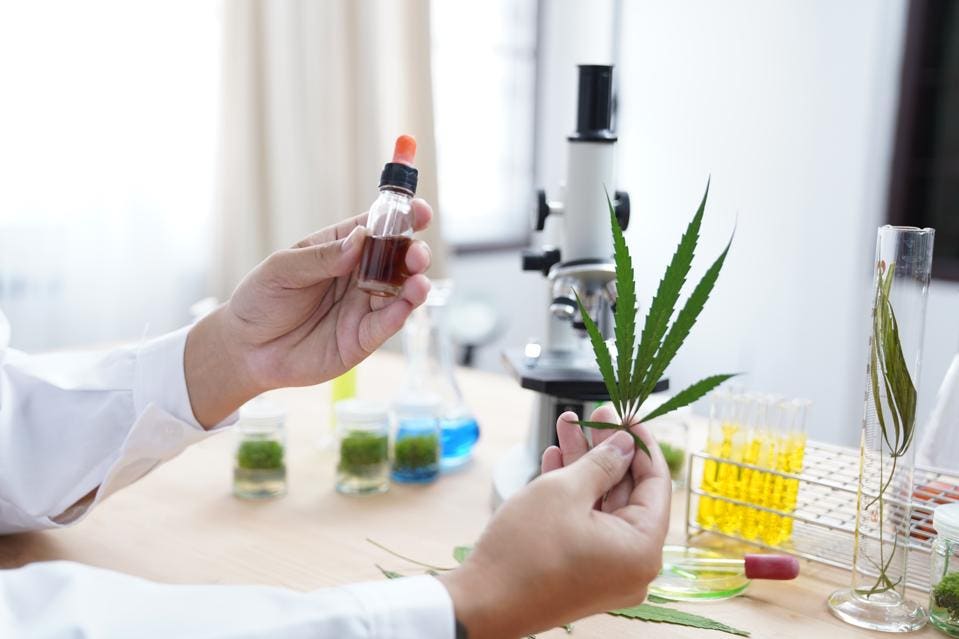Compounds in marijuana including THC and CBD show “promising potential as anticancer agents,” according to a recent review of scientific literature. The review by an international team of researchers found several ways that compounds in cannabis can affect cancer, including limiting the growth and spread of tumors and other benefits.
Hand of a scientist holding a marijuana leaf and cannabis oil extract
Compounds in marijuana including THC and CBD show “promising potential as anticancer agents,”
To complete the review, nine researchers from universities in Pakistan, Portugal, Turkey, Saudi Arabia, Romania and South Korea conducted a comprehensive search of several online databases for scientific literature that investigated the association between cannabis and cancer. The authors’ search “focused on peer-reviewed articles, review articles, and clinical trials discussing the anticancer properties of cannabinoids.” To be included in the review, articles had to be written in English and contain information on “the mechanisms of action and clinical efficacy of cannabinoids in cancer.”
Through their analysis, which was published last month in the peer-reviewed journal Discover Oncology, the researchers determined that cannabinoids including delta-9 THC, cannabidiol (CBD) and cannabigerol (CBG) showed “promising potential as anticancer agents through various mechanisms.”
“Cannabinoids, including Δ9-THC, CBD, and CBG, exhibit significant anticancer activities such as apoptosis induction, autophagy stimulation, cell cycle arrest, anti-proliferation, anti-angiogenesis, and metastasis inhibition,” the researchers wrote, online cannabis news source Marijuana Moment reported on Monday. “Clinical trials have demonstrated cannabinoids’ efficacy in tumor regression and health improvement in palliative care.”
While the researchers found ample evidence of the anti-cancer properties of cannabis, they noted that it is not clear exactly what is driving these benefits.
“Despite the evident anti-cancer properties of cannabinoids from numerous experimental results,” review notes, “the exact mechanisms of action still require extensive research.”
H/T: www.forbes.com



